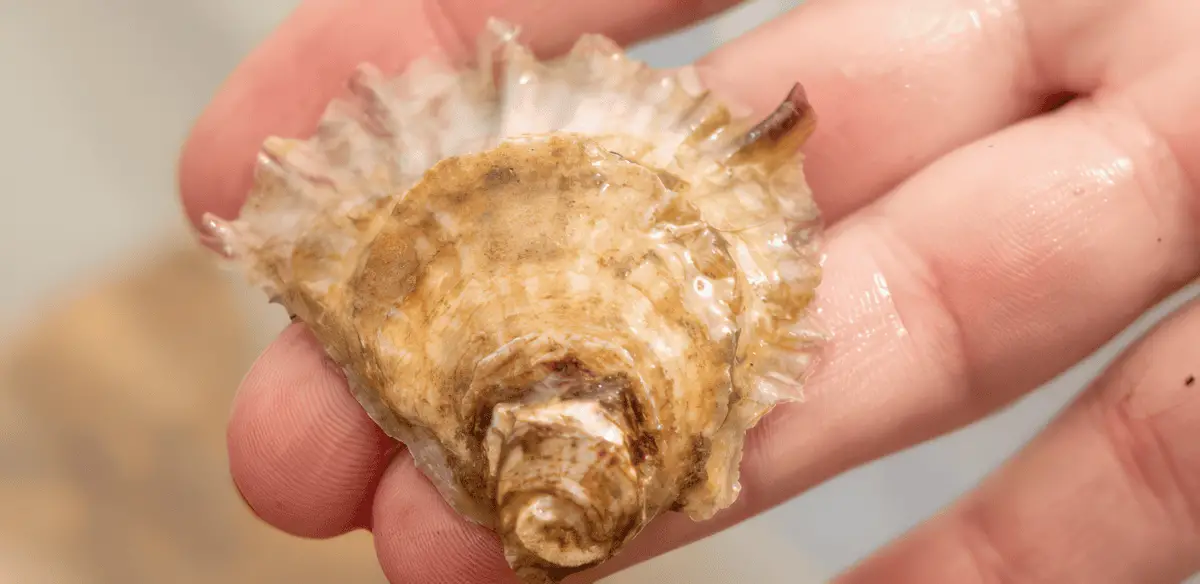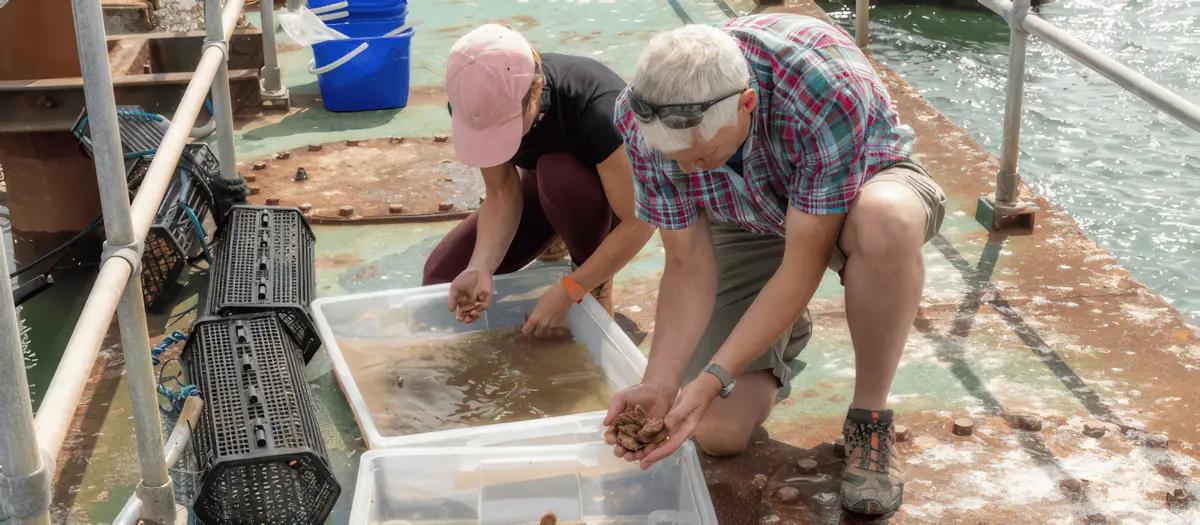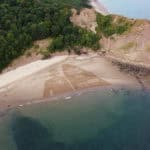Following in the footsteps of UKSA and Wightlink, the Ministry of Defence (MOD) have joined in efforts to help reintroduce oysters to the Solent and surrounding waters.
This initiative marks the first oyster conservation project on MOD estate, focusing on the reintroduction of at least 2,000 European flat oysters (Ostrea edulis) to the waters between the Isle of Wight and the Hampshire coast.
The Whale Island Native Oyster Restoration Project
Known as the Whale Island Native Oyster Restoration Project, this initiative is a collaboration between the DE&S Salvage and Marine Operations (SALMO) Wrecks team, the Royal Navy, the Defence Infrastructure Organisation (DIO), and the Blue Marine Foundation (BMF). The project aims to re-establish a healthy population of native oysters in the Solent.
Over the years, the population of these reef-forming keystone species has declined by over 95%. To combat this, the oysters are being grown by SALMO and Navy colleagues under pontoons at HMS Excellent, located on Whale Island in Portsmouth. This effort supports BMF’s Solent Oyster Restoration project, which seeks to enhance biodiversity, improve water quality, and restore a vital part of the marine ecosystem.
Challenges and responsibilities
The Solent once boasted the largest fishery in Europe for the Ostrea edulis oysters. However, the invasive Pacific oyster, Magallana gigas, has since taken over, posing potential threats to the local marine environment.
Harriet Rushton from the DE&S SALMO Wrecks team manages the project. She works closely with the Royal Navy and the Whale Island Conservation Volunteer Group to carry out monthly cleaning and maintenance of the oyster beds. These efforts ensure that the oysters develop properly by preventing fouling from algae, sea squirts, and other marine organisms, which can hinder their feeding and growth.

Benefits of oyster restoration
Oysters serve as natural water filters. Each adult oyster can filter up to 200 litres of water a day, removing pollutants and increasing water clarity. This, in turn, supports the growth of habitats like seagrass and saltmarsh, which are essential for coastal protection and carbon sequestration.
As the oysters grow, their shells merge to form reefs, creating biodiversity hotspots that provide shelter and food for various marine species. Additionally, the oysters help in carbon sequestration through the process of calcification, where carbon ions are extracted from seawater to build their shells.
Progress and future plans
Harriet Rushton, the Environmental Manager for DE&S SALMO Wrecks, expressed her excitement about the project, stating that reintroducing this native species will enhance biodiversity and contribute to cleaner waters in the Solent. She highlighted the MOD’s commitment to improving the UK’s ecosystem and addressing climate change.
At the start of the project, juvenile oysters were purchased from hatcheries across the UK and grown under the pontoons at HMS Excellent. Once they reached adulthood, they were released into the Solent to breed and restock the local waters. A second batch of oysters is now being prepared, sourced from Wales’ first regenerative seaweed and shellfish farm, Car y mor hatchery.
Support and future opportunities
Rod Jones, Senior Maritime Environmental Protection Adviser at the Royal Navy, has been a strong advocate for the project. He emphasized the Navy’s dedication to improving the marine environment and supporting the UK’s long-term biodiversity goals. He also noted that the success of this project could pave the way for similar initiatives at other MOD sites.

The MOD’s efforts align with the UK’s objectives for enhancing the marine environment, mitigating climate change, and boosting biodiversity. This project also supports the MOD’s Climate Change and Sustainability Strategic Approach, which aims to address the MOD’s impact on the environment.
Defence Minister Luke Pollard praised the initiative, highlighting the Royal Navy’s longstanding relationship with the Solent and its commitment to supporting the local area. He believes that through collaboration, efforts like this can significantly improve the marine environment and strengthen biodiversity.




